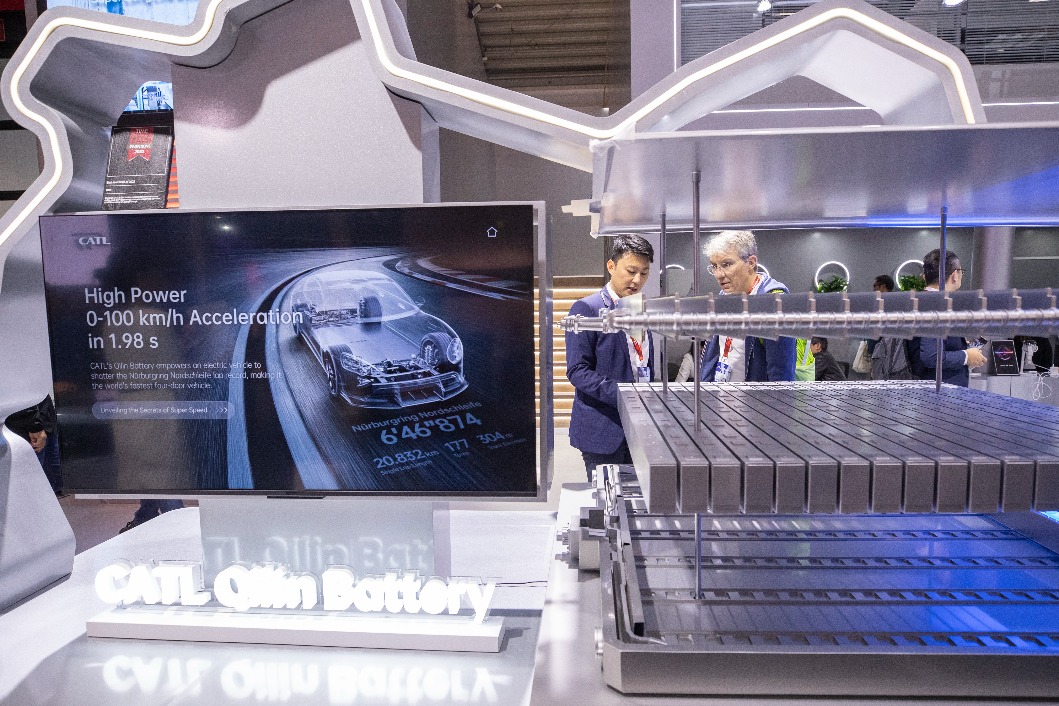The big leap

He says that the current battle between auto companies on pricing will change in subsequent years. "Now we are competing for low prices, after two to three years, when we achieve breakthroughs in core technologies, hopefully we can compete with top brands."
BYD, backed by US billionaire investor Warren Buffett, is another budget-car maker that has high hopes and has been making high-end passenger cars since 2007.
BYD marketing manager Paul Lin says the company spent a considerable sum of money to develop its high-end 6 series models. "But it is a race against time as every other brand is developing its own high-end variants. So we need to be faster than other brands to make our mark in this segment," he says.
Last year, BYD teamed up with Daimler to make an all-new electric car brand for the Chinese market. "Our alliance with Mercedes-Benz has been approved by the government, and we will soon launch the new models," Lin says.
"Every high-end car brand has its distinct characteristics. For BMW, it is 'control', while for Volvo, it is 'safety', whereas for Mercedes-Benz it is 'comfort'. For us, high-end cars are vehicles that will run on new energy and it will be our unique selling point."
Among the crowded market, there are also several smaller but well-known players who have made a mark for themselves. One such company is Haima.
Founded in the late 1980s, Haima went through different identities: First a local spare parts manufacturer; then a joint venture company of Mazda, and later on a subsidiary of FAW.
Based on the technology acquired from the Mazda joint venture, it has developed its own brands, which include minibuses, passenger cars, multi-purpose vehicles, sports utility vehicles and new energy cars.
Haima says that during the past five years it has invested more than 2 billion yuan in developing 10 new passenger models. Over the next five years, the company plans to invest another 3.6 billion yuan for developing 18 new car models.
State-owned car giants are also flexing their muscles in the automobile market. Chang'an Automobile Group is expanding its annual production capacity to roll out more vehicles.
Last year, Chang'an became the nation's fourth most productive automaker, selling 2.37 million units. Homegrown brands accounted for nearly 74 percent of Chang'an's sales with mini-vans and budget cars accounting for the lion's share.
Chang'an is now planning to make high-end vehicles and has started work on a new production base in Beijing to make mid- to high-end passenger cars and new energy cars. The company is also concentrating on building its brand and went for a brand makeover recently to take on players like Geely and Chery.
"We are still preparing our high-end brands, it will be launched in the near future. Our goal is to raise the high-end car sales to 30 percent of our self brands by 2015," says a Chang'an spokesperson.
"Most multinationals grow quickly through mergers and acquisitions. I think the same logic applies to the auto industry."
"I believe the number of auto companies will drop significantly in the next 10 years. We have to build mid-to high-end brands to gain more competitiveness," she says.
Today's Top News
- Targeted action plan to unleash consumption momentum
- Separatist plans of Lai slammed
- Sinologists help to bridge civilizations
- HK unveils sweeping steps after huge blaze
- China releases white paper on arms control
- China blasts new remarks by Japan's prime minister on Taiwan's legal status






























